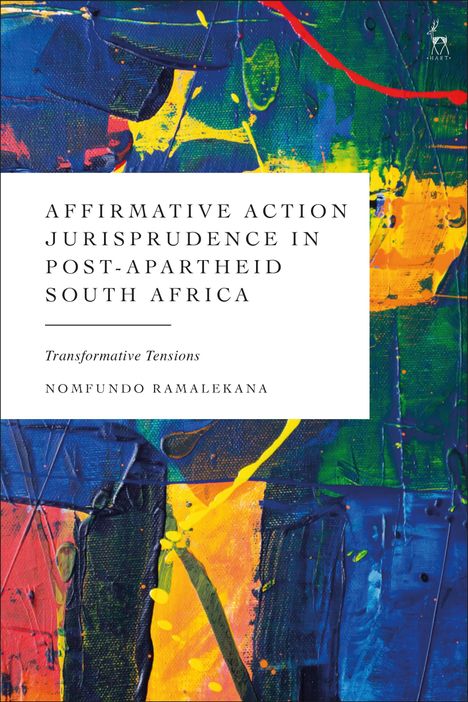Nomfundo Ramalekana: Affirmative Action Jurisprudence in Post-Apartheid South Africa, Gebunden
Affirmative Action Jurisprudence in Post-Apartheid South Africa
- Transformative Tensions
Lassen Sie sich über unseren eCourier benachrichtigen, sobald das Produkt bestellt werden kann.
- Verlag:
- Bloomsbury Academic, 11/2026
- Einband:
- Gebunden
- Sprache:
- Englisch
- ISBN-13:
- 9781509977505
- Umfang:
- 336 Seiten
- Gewicht:
- 454 g
- Maße:
- 234 x 156 mm
- Stärke:
- 25 mm
- Erscheinungstermin:
- 12.11.2026
- Hinweis
-
Achtung: Artikel ist nicht in deutscher Sprache!
Ähnliche Artikel
Klappentext
This book charts a path for developing a uniquely South African affirmative action regime. It proposes a transformative approach to affirmative action, one capable of untangling and dismantling the tensions that arise between the South African Constitution's promise of equality and the reality of being the world's most unequal society.
Against the background of South Africa's commitment to transformative constitutionalism and substantive equality, the book demonstrates how affirmative action measures can be designed and implemented in a way that tackles deeply ingrained inequality.
By examining the affirmative action jurisprudence of the South African Constitutional Court, as well as the courts in Kenya, the United States, Canada, and India, the book outlines how the courts, the legislature and executive policymakers in South Africa should address fundamental questions that arise in the design and implementation of affirmative action. These questions include what affirmative measures should aim to achieve (for what purpose?), how to determine beneficiary groups (for whom?), with a focus on quotas, the permissible forms that affirmative action could take (through what means?), and whether there is a set end-date for affirmative action (for how long?). By illustrating the possibility of a transformative approach to affirmative action, this book responds to the growing critique of affirmative action from both the left and right in South Africa and adds to the global conversation on the utility of affirmative action in the fight to eradicate inequality.





